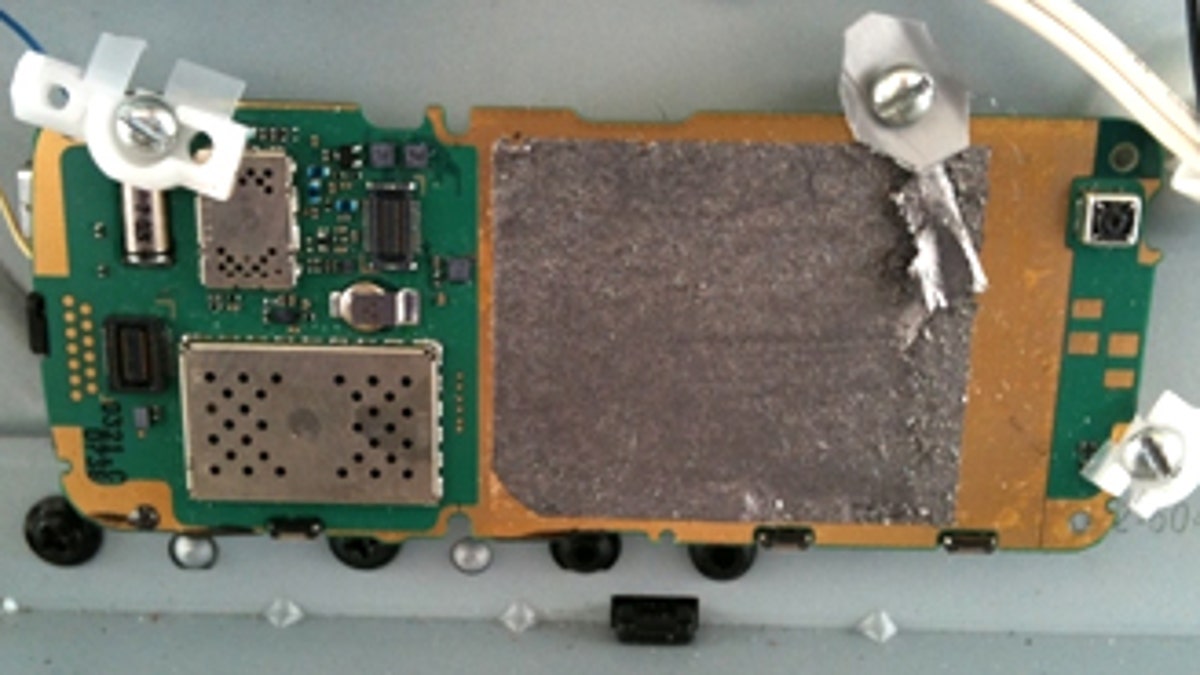
A circuit board within one of two mail bombs intercepted last week on its way from Yemen to the U.S. (Fox News).
A used toner cartridge could easily be modified into a bomb, a printer expert told FoxNews.com, underscoring fears that a mysterious object discovered in an air cargo shipment making its way from Yemen to the U.S. was intended as a terrorist attack.
Federal authorities shepherded airplanes into New York’s JFK and investigated suspicious packages on UPS planes at two U.S. airports in response to the discovery of suspicious packages found Thursday night in Dubai and England.
One of the packages contained an object described as a clear cartridge with wires coming out, and authorities speculated that it could be a toner cartridge that had been manipulated. John Shane, an expert on all things printers, agreed.
"I’m not sure that it's any different for a toner cartridge than for any other product," Shane, director of the communication supplies consulting service with market research firm InfoTrends, told FoxNews.com, noting that "you could take apart a notebook PC or you could take apart a can of coffee."
Anything could be used as the shell for a bomb, in other words. But toner cartridges are an interesting choice, since there's an entire industry designed around remanufacturing them.
"There's an industry designed around taking apart toner cartridges and replacing the old toner with new toner," Shane pointed out, meaning they're easy to gain access to -- even in Yemen, the reported source of the terror packages. "There's a global trade in empty toner cartridges," Shane told FoxNews.com.
Jim Cerkleski, chief executive officer of Clover Technologies Group, the global leader in remanufacturing cartridges, said the circuit board seen in grainy images taken of the reported explosive device "looks nothing like anything inside a toner or ink cartridge ... clearly looked like a remanufactured system."
He said it looked like a model originally made by Brother or HP.
Shane wasn't sure.
"I can't tell if it's HP or Lexmark or Xerox or Brother -- it looks like a regular office laser cartridge," he said.
Representatives from the major printer manufacturers -- including Hewlett Packard, Canon, and Epson -- declined to speculate on the device.
As to reports that the cartridge contained a white powder rather than the black toner that would be expected, Shane said it was hard to say conclusively that it was evidence of a bomb. During the remanufacturing process, a white powder is sometimes introduced, he said.
"There's something called packing powder that's used to make sure that it's done properly."
Shane said that circuit boards similar to the one seen in the pictures of the device are quite common, even one as shabby as that seen here. During the printer remanufacturing process, Shane said, it's not uncommon for a remanufacturer to replace the board with a third-party one to avoid copyright issues.
"Original toner cartridges come with chips that help them do all kinds of things," Shane said. "It's not at all uncommon for there to be chips in toner cartridge." Such chips, and the printed circuit boards holding them, talk to the printer, count pages, know when there's a problem, and even detect when components are wearing down to adjust voltages to keep parts functioning properly.
"Some remanufactured toner cartridges could easily have as crude a circuit board as that picture I saw," Shane said.
